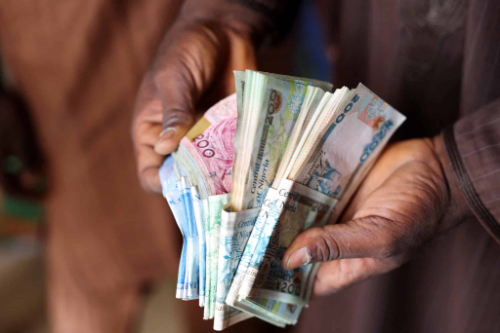Nigeria's Economy Becomes 30% Bigger After Statistical Rebase

TLDR
- Nigeria’s economy is now estimated at ₦372.8 trillion ($243 billion) in 2024 after the National Bureau of Statistics (NBS) updated its GDP base year to 2019
- The revision expands GDP by over 30% from prior IMF projections of $187.6 billion and includes previously uncounted sectors in the informal economy
- Despite the increase, Nigeria remains the fourth largest economy in Africa, behind South Africa ($410.3 billion), Egypt ($347 billion), and Algeria ($268.9 billion)
Nigeria’s economy is now estimated at ₦372.8 trillion ($243 billion) in 2024 after the National Bureau of Statistics (NBS) updated its GDP base year to 2019, replacing the previous 2010 benchmark. The revision expands GDP by over 30% from prior IMF projections of $187.6 billion and includes previously uncounted sectors in the informal economy.
Despite the increase, Nigeria remains the fourth largest economy in Africa, behind South Africa ($410.3 billion), Egypt ($347 billion), and Algeria ($268.9 billion), according to IMF estimates.
The rebased GDP for 2023 was ₦314 trillion. The NBS said the revision covers 2019–2023 and aligns GDP calculations with current economic realities, including updated sector weights and data sources.
In Q1 2025, Nigeria recorded 3.13% real GDP growth year-on-year, driven by the services sector, which contributed 57.5% to total output. Industry and agriculture grew 3.42% and 0.07%, respectively. Nominal GDP for the quarter was ₦94 trillion, up 18.3% from Q1 2024.
Daba is Africa's leading investment platform for private and public markets. Download here
Key Takeaways
Nigeria’s GDP rebasing provides a more accurate picture of the economy’s size and sectoral composition. The inclusion of informal activity and emerging industries pushes the economy’s nominal value up, yet this statistical boost does not equate to stronger fundamentals. The country’s population continues to grow faster than GDP per capita, and inflation, currency pressures, and fiscal constraints persist. Despite leading in population and resource potential, Nigeria still lags South Africa and Egypt in overall economic output. The rebasing offers opportunities for better policymaking, improved credit metrics, and more accurate investor assessments. But unlocking growth will depend on structural reforms, revenue mobilization, and attracting productive investment beyond the services sector.

Next Frontier
Stay up to date on major news and events in African markets. Delivered weekly.
Pulse54
UDeep-dives into what’s old and new in Africa’s investment landscape. Delivered twice monthly.
Events
Sign up to stay informed about our regular webinars, product launches, and exhibitions.




